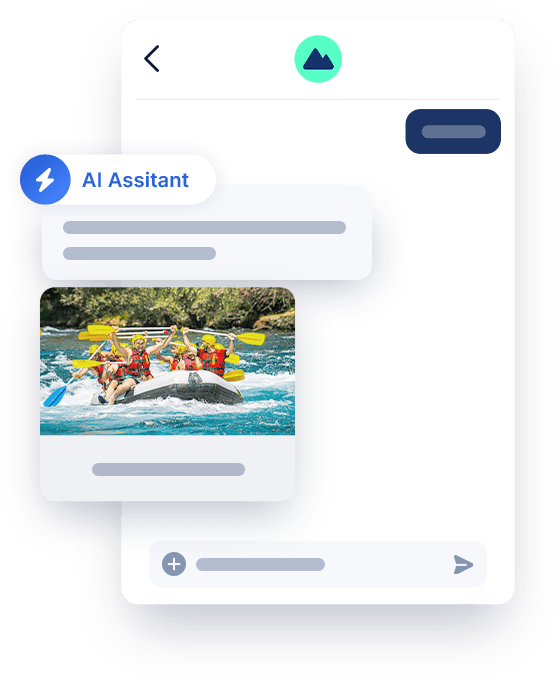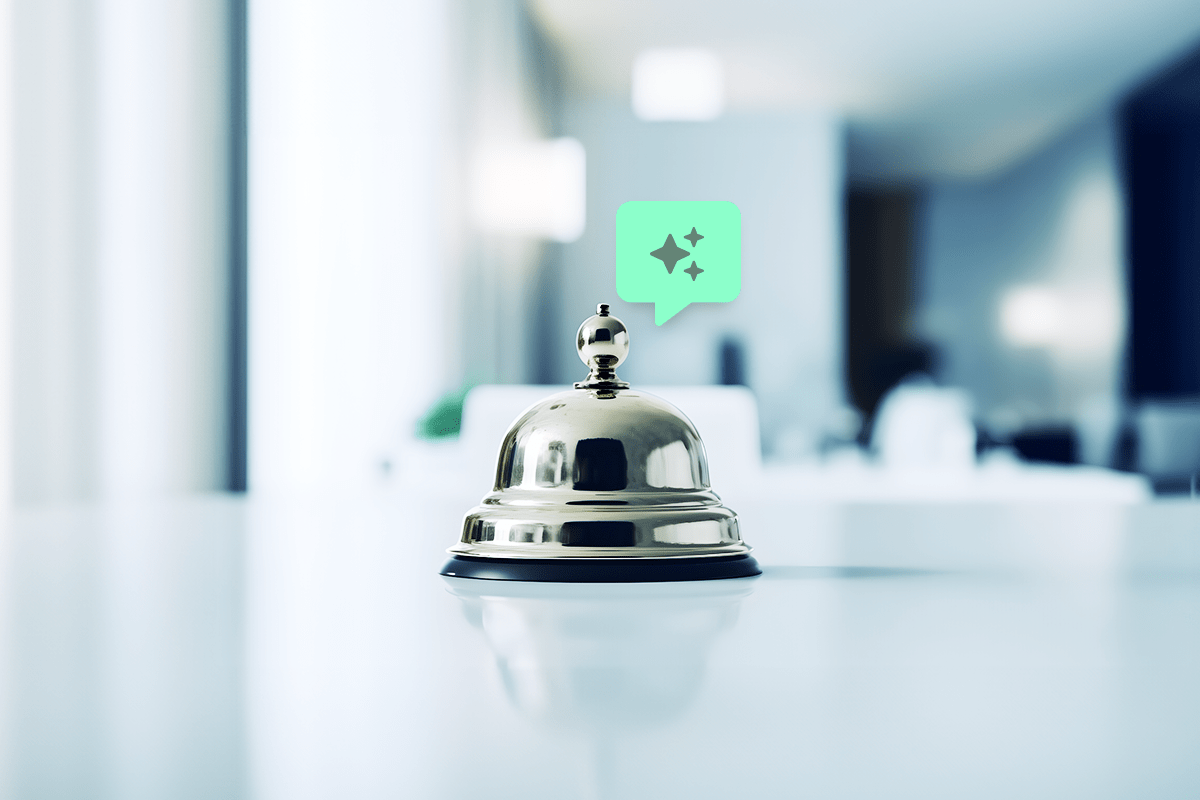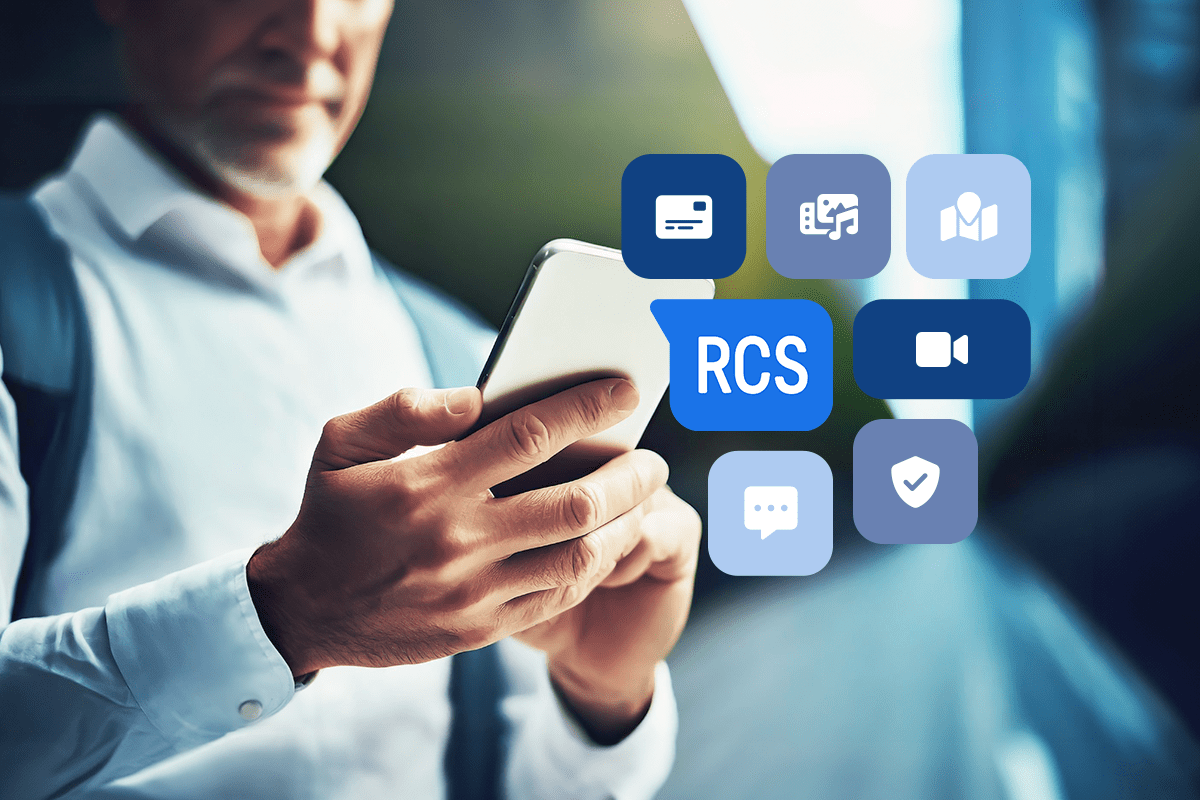Facebook Messenger for Business 101
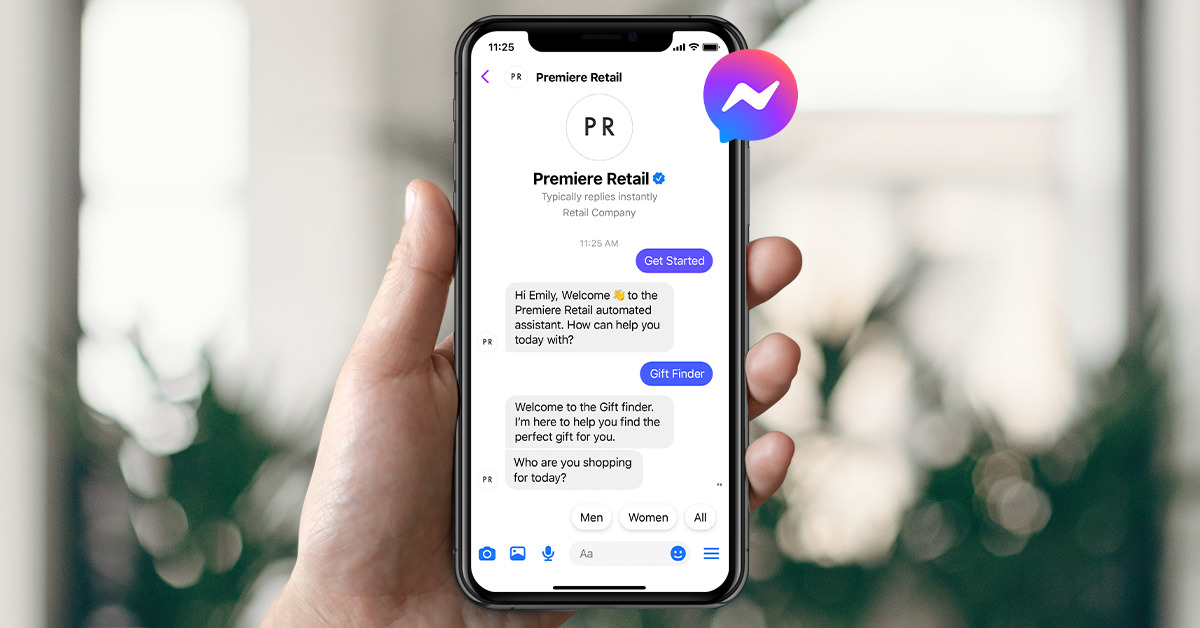
You’re connecting with your customers via email. Your customer support team is available by phone. And now you’ve heard you need to be on Facebook Messenger for business—but you’re left wondering: What is it, and how does it work?
We’ll break it down for you, along with some tips and tricks for getting the most out of the platform.
What is Facebook Messenger for business?
Messenger is Facebook’s app and platform for sending text, pictures, video, and link messages. Using Facebook Messenger for business allows your customers to message you directly (and vice versa) using your company page from the Messenger mobile app or the chat window via desktop.
There are several ways Facebook users can reach out to you using Messenger. They can: 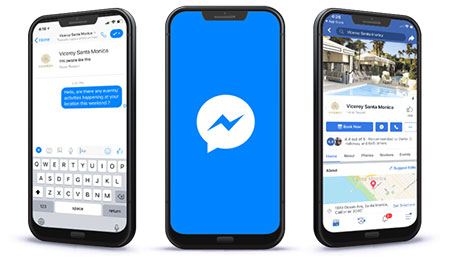
- Send a message from your company’s Facebook page
- Search for your business’ username in the Messenger app
- Engage with a click-to-messenger ad
- Follow a messenger link
- Follow a QR code
In order to mitigate spam, Facebook requires users to reach out to your page via Messenger first before you can send a message.
Why should you use Facebook Messenger?
Adding Messenger as a way for customers to communicate with your brand is just the next evolution of customer service. Here are four ways Facebook Messenger enhances your customer experience and improves your business.
1. Be more available to your customers.
Customers are more likely to engage with your brand in the same way they engage with family and friends. You’re available the moment they wish to connect with you, and in a platform they’re already using. You’re more top of mind, and it takes less effort to take quick action.
It’s as simple as being available where your customers are: Facebook. 64% of people across generations said they prefer messaging to a call or email, according to a Facebook IQ survey.
Customers expect customization and personalization from brands, and that’s expanded to when and how they communicate with you. Many shoppers today like the personal and informal service that messaging inspires. It allows them to get immediate responses from a brand without having to respond instantly themselves. They’re in control and can connect quickly but still at their leisure.
2. Give your customers a better experience.
The customer experience is super important, especially for e-commerce brands that have few opportunities to impress their base. When it comes to creating a good customer experience, Facebook Messenger for business hits multiple targets.
Messenger improves the chances of your company hitting three of the top four criteria customers say indicates a “good customer experience,” according to a Zendesk survey:
- Resolve issues quickly (61%)
- Support is available 24/7 (i.e., in real-time) (42%)
- Support is available through my desired contact method (32%)
And the data proves that messaging produces results. It has a CSAT of 98%—the highest across channels, according to Zendesk.
3. Resolve customer issues faster.
Messenger provides the perfect opportunity for chatbot integration. You can provide quick information to your customers while easing the stress on your support team. 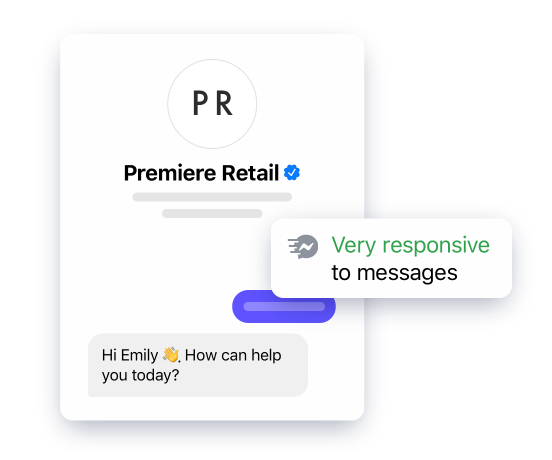
In our own survey of Quiq clients, 70–80% of inbound inquiries via Messenger are resolved with automation. Where’s-my-order inquiries have an even higher automation resolution rate at 86%.
When Facebook users first head to your page, you can have a welcome or get-started message waiting for them. Putting together a few pre-programmed responses will go a long way. Your customers get the quick answers they need, while your customer support team is free to spend more time providing high-value service.
4. Increase sales.
Yep, you read that right. Using Facebook Messenger can actually help you increase sales.
Sometimes it’s as simple as being available when your customers need you. 65% of people said they’d be more likely to shop with a business they can contact via chat, according to Facebook IQ.
And 69% of surveyed Facebook users who message businesses say it makes them feel more confident about the brand, according to a Facebook-commissioned survey.
Plus, you can tap into a variety of creative strategies to increase conversions and even sell to your customers with Messenger.
How to use Facebook Messenger.
If you’ve used Facebook in the last ten years, getting started with Messenger should be fairly simple. But we’ve provided some basics to get you started.
- Make sure messaging for your business page is turned on. (It’s on by default.)
- Create a username for your page so users can easily search for it in the Facebook Messenger app.
- Tell users you’re active on Messenger by earning a “Very Responsive” badge. Keep your response times under 15 minutes and maintain at least a 90% response rate to see this appear on your page. (This should be very easy to do with the right bot integration.)
An important note for using Messenger: Facebook requires users to send the first message before you can chat with them, so it’s crucial you give them ample opportunities to make the first move.
Here are a few ways to encourage messaging:
- Add the “Send Message” button to your page and your posts
- Create a welcome message that will appear when users head to your Facebook Page.
- Create click-to-messenger ads on Facebook. These ads will appear in your prospects’ feeds and encourage them to start a conversation with you.
- Add your Messenger link or a QR code to various marketing materials when you want to start a conversation.
Once a customer messages you, you only have 24 hours to respond. After the 24 hours elapses, you can send one additional non promotional message before the conversation expires.
Facebook Messenger enables creative strategies to increase sales.
Like with all customer communication platforms, it’s important to have a solid strategy to provide top-tier customer service and capitalize on sales.
Adding organic conversations to your customer journey is a great way to build trust and brand loyalty.
- Create a post advertising an attractive discount or fun quiz and instruct users to click on the “Send Message” button to receive the offer. Once they’ve initiated the message, you’re free to send additional promotional messages over the next 24 hours. (But avoid spamming!)
- Personalize messages with information from the platform, including name, location, age, and other demographics.
Facebook’s robust advertising capabilities extend to Messenger for business. Any information you gathered during conversations with your target audience can be used to increase the efficacy of your Facebook ads.
- Create a target audience using the conversations in Messenger. Start with users who have sent messages, and start refining the information you gained from those conversations. What type of apparel do they buy? What products did they show interest in? You can also use demographic information within Facebook to narrow down your audience even further.
- Create a lookalike audience of the customers who have messaged you and target them with similar messaging.
Quiq: Your CX wingman.
We get it. Adding another messaging platform to your already-full customer experience seems daunting—but we have your back.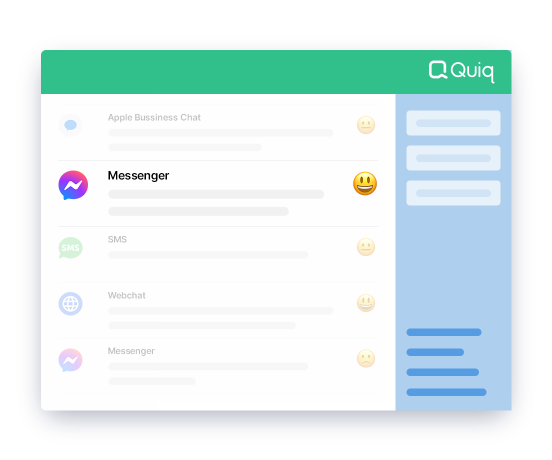
Quiq is the future of business-to-consumer messaging. Our leading conversational AI platform will help you connect with customers at scale.
- Support customers directly in Messenger
- Route messages between chatbots and live agents
- Continue conversations across channels

